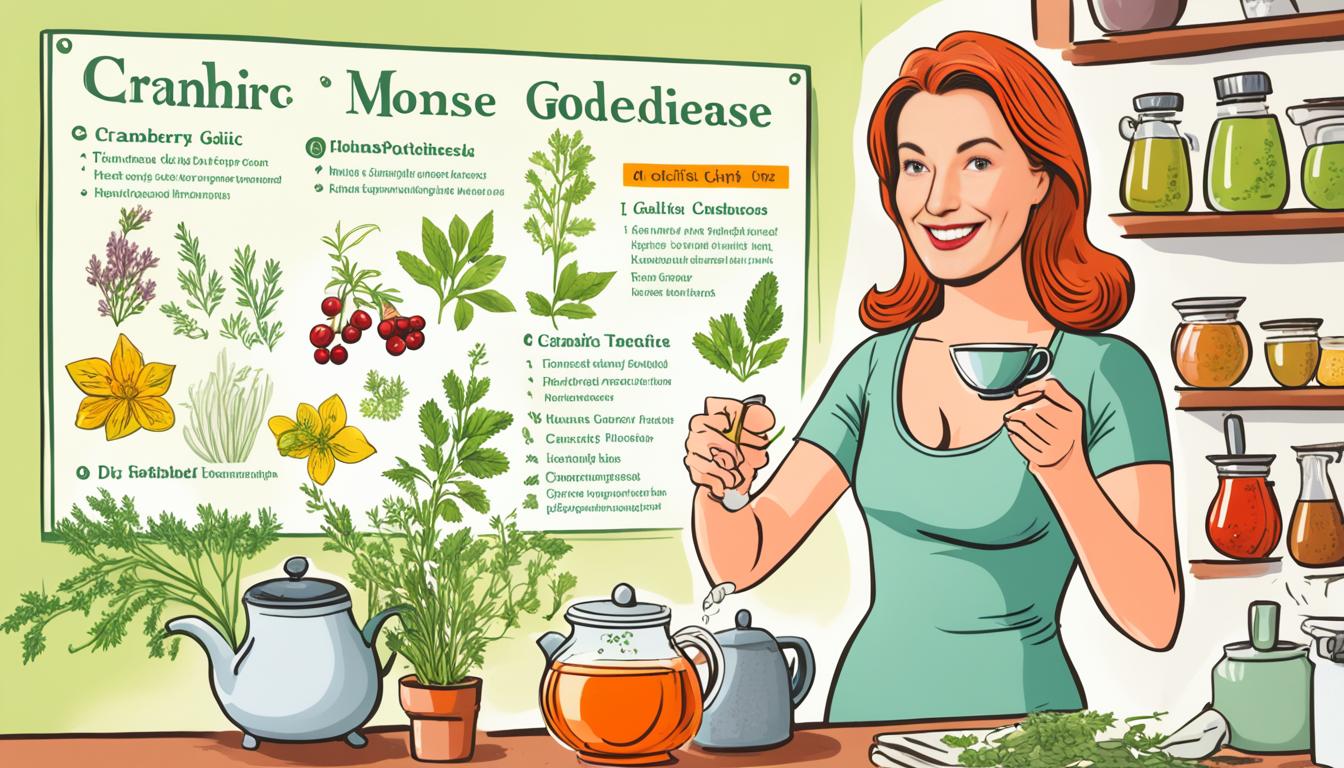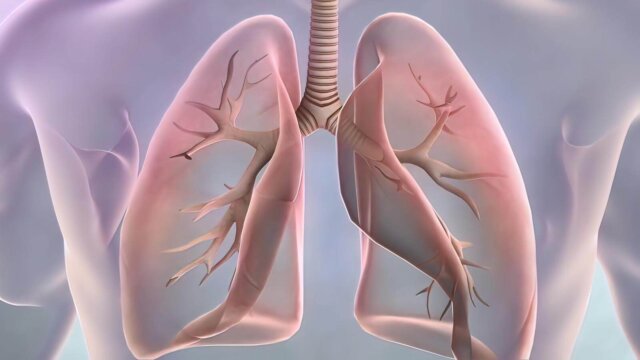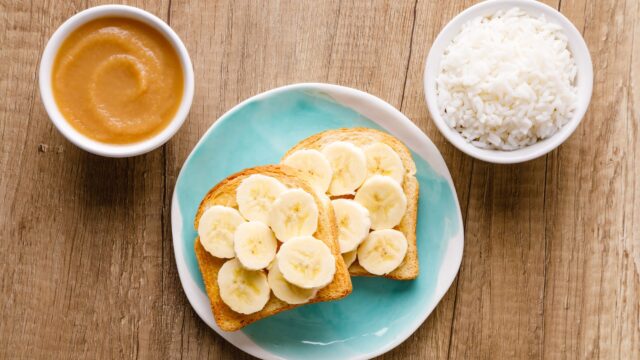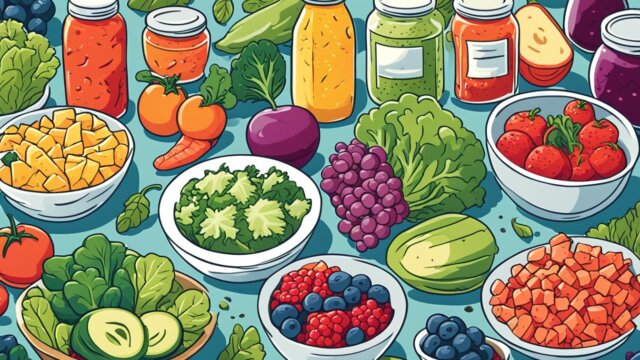FTC disclaimer: This post may contains affiliate links and we will be compensated if you click on a link and make a purchase.
Urinary tract infections (UTIs) are pretty common. In 2019, there were over 404.6 million cases worldwide, according to a 2022 analysis. They happen when bacteria from the skin or rectum get into the urethra. This often causes bladder infections. They’re most common among women. This is because women have a shorter urethra. It’s close to the vagina and rectum.
There are many things that can make someone more likely to get a UTI. These include past UTIs, being sexually active, not keeping clean, being very young or old, being pregnant, having diabetes, and more.
The signs of a UTI are easy to notice. There’s usually a burning feeling when you pee. You might need to pee a lot. The pee could look cloudy or dark. It might smell really strong.
You could feel like you still need to pee even after you just went. Plus, your lower belly might hurt. Doctors often use antibiotics to treat UTIs. But, there are natural ways to help too. Some home remedies can help fight off infections. They can also lower how often you get UTIs.
Key Takeaways
- Urinary tract infections (UTIs) are a widespread health issue, with over 400 million cases worldwide in 2019.
- Women are more susceptible to UTIs due to their unique anatomy and risk factors like sexual activity and pregnancy.
- Natural home remedies like cranberry juice, increased fluid intake, and probiotics can help manage UTI symptoms and prevent recurrence.
- Maintaining good hygiene habits and considering changes to birth control methods may also reduce the risk of UTIs.
- Seeking medical treatment is essential if UTI symptoms persist or worsen, as untreated infections can lead to more serious complications.
What is a Urinary Tract Infection (UTI)?
Urinary tract infections are often caused by bacteria, like E. coli. These germs can get into the bladder and urethra. A 2022 study found UTIs affected over 404.6 million people around the globe in 2019. Bladder infections are the most widespread.
Causes and Risk Factors
Several things can make a UTI more likely. These include past UTIs, being sexually active, and poor hygiene. Other factors are age, both young and old, pregnancy, and changes in the vagina. Issues in the urinary tract, catheter use, and conditions like diabetes also play a part. Drinking plenty of water can lower the risk of a UTI.
Symptoms of UTI
If you have a UTI, you might notice a few things. This can include a burning feeling when you pee and needing to go often. Your urine might look cloudy or have a strong smell. You might also have pelvic pain or feel like you can’t empty your bladder completely. UTIs are pretty common. People with UTIs are usually women. This is the second most common infection in the body.
Drink Plenty of Fluids
Drinking enough is key to avoid UTIs. Focus on water and go often. This clears out the bad stuff. A 2019 study showed a certain drinking plan can cut UTIs needing medicine by 58% in nursing homes. Also, a 2020 study noted less UTIs in women who drank more water. National Institute of Diabetes and Digestive and Kidney Diseases says drink six to eight 8-ounce glasses daily for UTIs.
Benefits of Staying Hydrated
Staying hydrated is a must for good urinary health. It fights off bacteria and toxins. Lessen the risk of UTIs by going vegetarian, a study shows. They drink more fluids.

Increase Vitamin C Intake
Eating more vitamin C may prevent UTIs. It makes urine more acidic, killing bad bacteria. In 2020, giving kidney patients vitamin C through a vein cut urine bacteria. Mixing vitamin C with cranberries and Lactobacillus rhamnosus helps fight recurrent UTIs.
Foods Rich in Vitamin C
[foods high in vitamin c for uti] include red peppers, oranges, grapefruit, and kiwifruit.Vitamin C Supplements
You can also take [vitamin c supplements for uti] as gummies, sprays, or oral tablets. These may help too.

Use Cranberry Juice or Cranberry Supplements
How Cranberries Help Prevent UTIs
Drinking unsweetened cranberry juice or taking cranberry supplements can help with urinary tract infections (UTIs). Cranberries have something called proanthocyanidins. These stop bacteria like E. coli from sticking in the urinary tract.
A 2022 study shows good news. People who often get UTIs had fewer of them after taking cranberry supplements for 6 months. Another review from 2021 looked at 23 studies. It said cranberry supplements really do cut the chances of getting a UTI. But, the studies had some problems.
Research also backs up cranberry juice for UTI and cranberry supplements for UTI. They both can help stop UTIs from coming back. This happens because cranberries can prevent UTIs. They make it hard for bacteria to latch onto the urinary tract’s cells.
Home remedies for UTI
In addition to the home remedies discussed in previous sections, there are other natural treatments. These include probiotics and garlic. They help restore the balance of bacteria in the body. This balance helps reduce UTI risk and recurrence.
- Probiotics: Probiotics can help restore the balance of good and bad bacteria in the gut and urogenital system, potentially reducing the risk and recurrence of UTIs.
- Garlic: Garlic and garlic extract have antimicrobial properties that may help block the growth of bacteria and prevent UTIs, though more research is needed.
- Avoiding certain foods and beverages: Avoiding irritants like alcohol, caffeine, and acidic foods may help reduce bladder irritation and support the body’s ability to fight infection.
- Switching birth control methods: Some research suggests certain contraceptives like diaphragms, spermicides, and nonlubricated condoms may increase the risk of UTIs.
- Using heat therapy: Applying a heating pad to the lower abdomen can help ease discomfort from a UTI.

Take Probiotics
Probiotics are tiny living things that help keep your stomach healthy. They can lower the chance of getting a UTI. This is useful after taking antibiotics for a UTI.
Benefits of Probiotics for UTIs
Probiotics help fight off UTIs by adding good bacteria back. This is great for anyone who gets UTIs often.
Probiotic-Rich Foods
Kefir, kimchi, kombucha, and probiotic yogurt are good for you. These foods have many good bacteria that help your urinary system. Taking a probiotic like Uqora Promote can also keep your urinary tract healthy.

Practice Healthy Hygiene Habits
Good bathroom habits can stop UTIs. Remember to pee often. It helps clean your bladder and stops bacteria from growing. Peeing after sex gets rid of germs too.
Urinating Regularly
When you wipe, always go from front to back. This keeps bad bacteria away from where it shouldn’t be. Have some Always Feminine Wipes on hand to keep yourself extra clean.
Proper Wiping Technique
Doing the right thing in the bathroom is key. Remember to wipe from front to back. Include things like [urination for uti] and [wiping technique for uti] in your daily routine to lower your chance of a UTI.

Supplement with Garlic
Studies have found that garlic can help stop bacteria growth thanks to its antimicrobial properties. This may prevent UTIs. Garlic has a long history of fighting many types of germs. Scientists think the allicin and sulfur in it are the main reasons for this.
While there aren’t enough studies on garlic and UTIs, a 2014 research showed interesting results. Garlic oil and parsley pills together seemed to slow down bacteria. This means they might stop the bacteria from spreading.
Another study in 2022 supported this finding. Rats with a UTI got better when they took garlic.
Adding raw garlic to meals could help. But, people with sensitive stomachs might find it too strong. For them, garlic supplements could be a safer choice.
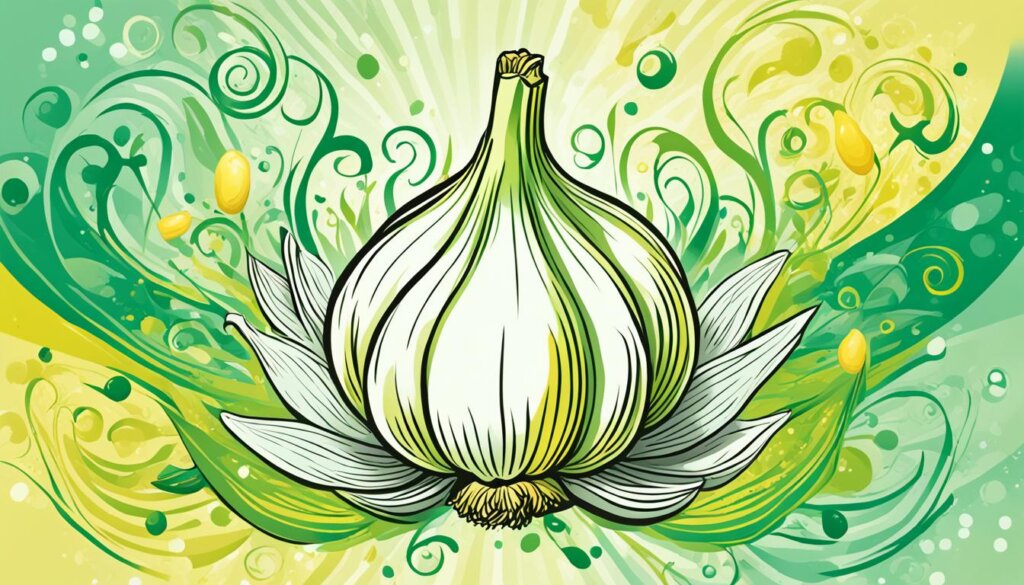
Avoid Certain Foods and Beverages
Some foods and drinks can make UTI symptoms worse or raise the risk of getting one. These are things like alcohol, caffeine, and fake sugars. Also, stay away from citrus fruits. Not eating or drinking these can make it harder for bacteria in the urinary system to grow.
Research shows coffee, tea, and alcohol can bother your bladder. This can lead to UTI symptoms being worse. So, it’s best to cut out coffee, tea, and other drinks that might irritate the bladder.
An old study from 1985 found a link between cola drinks and UTIs in 225 women. Another study with over 4,000 adults connected coffee and soda to infections in the lower urinary tract.
But, in 2003 a different study showed some interesting results. It found that drinking fresh 100% juice and eating yogurt could lower UTI risks. Men who drank citrus juice had 50% less chance of getting bladder symptoms.
When you have a UTI, it’s best to not eat certain things. Don’t have sugar, carbs, or foods that are spicy. Also, avoid citrus fruits, soda, alcohol, and drinks with caffeine.
Consider Switching Birth Control Methods
Some studies show certain birth control types might raise the chance of getting a UTI for women. These include diaphragms, spermicides, and nonlubricated condoms.
A big study in 2023, looking at over 24,000 cases, found a slight bump in UTI risk from using oral contraceptives, intrauterine devices, or shots. If you often get UTIs and use these kinds of birth control, talking to your doctor about other options may help lower your UTI risk.
Birth Control Method | Risk of UTI |
|---|---|
Diaphragms | Increased risk |
Spermicides | Increased risk |
Non-lubricated condoms | Increased risk |
Oral contraceptives | Slightly increased risk |
Intrauterine devices (IUDs) | Slightly increased risk |
Contraceptive injections | Slightly increased risk |

Try Vaginal Estrogen Therapy
Vaginal estrogen therapy comes in creams, tablets, or rings. Mainly for postmenopausal women facing recurring UTIs. After menopause, lower estrogen levels change the vaginal bacteria, leading to more UTIs. Using vaginal estrogen can help bring back the right bacterial balance. This might stop the UTIs from happening again. Ask your doctor if this could work for you.
Many postmenopausal women get recurrent UTIs. Using vaginal estrogen is both safe and helps lower UTI chances. There are 7 FDA-approved products for this issue. Start using them nightly for two weeks, then go to 1 to 3 times a week.
This treatment has been proven to help in those with low estrogen and postmenopausal women. It can also ease symptoms like dryness, painful sex, and feeling like the vagina is burning. This treatment is safe and works for women with recurrent UTIs. Even if you had breast cancer, this therapy might be good for you.
Use Heat Therapy
Applying a heating pad on your stomach helps with UTI (urinary tract infection) pain. It lessens the hurt and burning when you pee. It’s good to use with other treatments like antibiotics.
Over-the-Counter Remedies
Along with home remedies, you can use over-the-counter (OTC) products for UTI symptomsthe counter uti remedies>. An example is phenazopyridine, or AZO Urinary Pain Reliefthe counter uti remedies>. Phenazopyridine works as a bladder anesthetic.
It eases the pain, burning, and frequent urges to urinate from a UTI. OTC options, such as this, only manage the symptoms. They do not cure the bacterial infection. So, seeing a doctor for antibiotics is still needed.
When to Seek Medical Treatment
Home remedies can help with mild when to see doctor for uti symptoms. But, if things don’t get better or they get worse, you should see a doctor. Especially, if you have:
- Chills
- Fever
- Vomiting
- Pain in your back or side
These signs may mean a kidney infection or a more serious problem. You probably need uti medical treatment with antibiotics if this is the case. Untreated UTIs can cause big problems. So, seeing your doctor is the best move, even if trying home cures.
A urine test can find out if you have an infection. It can show if there are white or red blood cells, or bacteria. These mean you might have a UTI. The test can also find the exact bacteria. This helps the doctor give you the right medicine. Doctors may also use scans like ultrasound to check if there’s an issue with your urinary tract. If you get UTIs often, they might want to check this out. Treating UTIs often means taking antibiotics for at least a week. For some, like men, just 1 to 3 days of pills might be enough. It depends on your situation.
It’s a good idea to drink a lot of water with a UTI. This helps pee out the germs. Drinking cranberry juice or taking cranberry pills might also help. Some studies suggest they fight off UTIs, but we need more research to be sure.
Conclusion
Urinary tract infections (UTIs) are common and cause pain. But, there are many natural home remedies. These can help cope with symptoms and maybe stop future infections. Drink more fluids, eat cranberries, probiotics, and garlic, or take vitamin C. Also, keep clean. If UTI signs stay or get worse, see a doctor.
A doctor can help you make a plan to beat a UTI and stay healthy. By following these natural UTI treatments, you take steps to stop more UTIs and keep your urinary tract well. Yet, if home treatments do not work, or if your symptoms are serious, see a doctor.
FAQ
What is a Urinary Tract Infection (UTI)?
UTIs happen when bacteria get into the bladder through the urethra. This can cause a burning feeling when peeing, needing to pee often, and pain in the pelvis.
What are the causes and risk factors for UTIs?
Bacteria, especially E. coli, are the main cause of UTIs. Things that make a UTI more likely include a history of UTIs, being sexually active, not keeping clean, and certain health issues.
What are the common symptoms of a UTI?
Key UTI signs are a burning feeling when you pee, needing to go often, and dark or smelly pee. Also, you might feel like you can’t fully empty your bladder and have pelvic pain.
How can drinking more fluids help prevent and manage UTIs?
Drinking lots of water can help get rid of bacteria in your urinary tract. It’s been shown to lower your chances of getting a UTI.
How can vitamin C help with UTIs?
A: Vitamin C can make your urine more acidic, which fights off UTI-causing bacteria. Eating foods high in vitamin C, like red peppers and oranges, can help. Supplements are also an option.
How do cranberries and cranberry supplements help with UTIs?
A: Cranberries have a special type of compound that stops bacteria from sticking to your urinary tract. Drinking pure cranberry juice or taking supplements is a known way to help.
What other home remedies can help manage UTIs?
Some natural ways to deal with UTIs include taking probiotics and eating garlic. It’s also good to avoid things that can irritate your bladder, like alcohol and caffeine.
Changing your birth control and using vaginal estrogen might help too. And don’t forget about applying a warm compress for pain relief.
How can probiotics help with UTIs?
Probiotics can balance the good and bad bacteria in your digestive and urinary systems. This balance can help reduce how often you get UTIs. Foods such as kefir and yogurt are rich in probiotics.
What hygiene practices can help prevent UTIs?
Good hygiene, like peeing when you need to, using the restroom before and after sex, and wiping from front to back, can stop bacteria from spreading. These habits lower your UTI risk.
How can garlic help with UTIs?
Garlic has properties that fight bacteria. This might help keep UTIs away. But, more study is needed to be sure.
What foods and beverages should be avoided to help prevent UTIs?
It’s best to steer clear of things like alcohol, caffeine, and foods that are harsh on your bladder. Steering clear of these can cut your risk of getting a UTI.
How can switching birth control methods affect the risk of UTIs?
Some birth control methods, like diaphragms and certain condoms, could make UTIs more likely. Talking to a doctor about other options might be a good idea.
How can vaginal estrogen therapy help with recurrent UTIs?
For postmenopausal women, using estrogen directly in the vagina can help avoid UTIs. This is because it helps keep the bacteria in the area balanced.
How can heat therapy help manage UTI symptoms?
Placing something warm on your stomach can soothe the pain and constant need to pee that comes with a UTI. This method help with the symptoms but does not treat the UTI itself.
What over-the-counter remedies can help with UTI symptoms?
Phenazopyridine, found in products like AZO Urinary Pain Relief, can make the pain, burning, and urge to pee less for a short time. But, it doesn’t cure the UTI.
When should I seek medical treatment for a UTI?
If a UTI doesn’t get better or you have very bad symptoms like chills, fever, vomiting, or serious pain, see a doctor. You might need antibiotics for a more serious infection.
